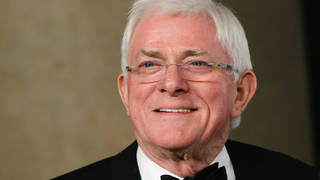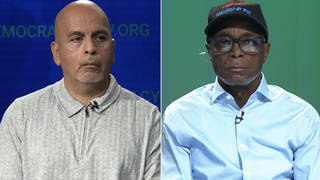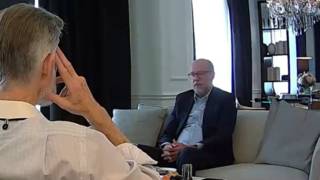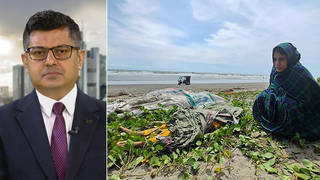
During President Biden’s speech on the first night of the DNC, protesters briefly unfurled a banner that read “Stop Arming Israel,” before it was wrested away by convention staff. We speak to three members of the group Delegates Against Genocide who organized and carried out the action: Esam Boraey, a human rights activist and delegate from Connecticut; Florida DNC member Nadia Ahmad; and progressive Jewish activist Liano Sharon, an elected delegate from Michigan. “We were there specifically to confront President Joe Biden,” says Ahmad, explaining why the protesters chose to disrupt Biden’s speech. “He’s the one who can stop this genocide by picking up the phone and making a phone call, and he has chosen not to do that.”
This content originally appeared on Democracy Now! and was authored by Democracy Now!.
This post was originally published on Radio Free.










